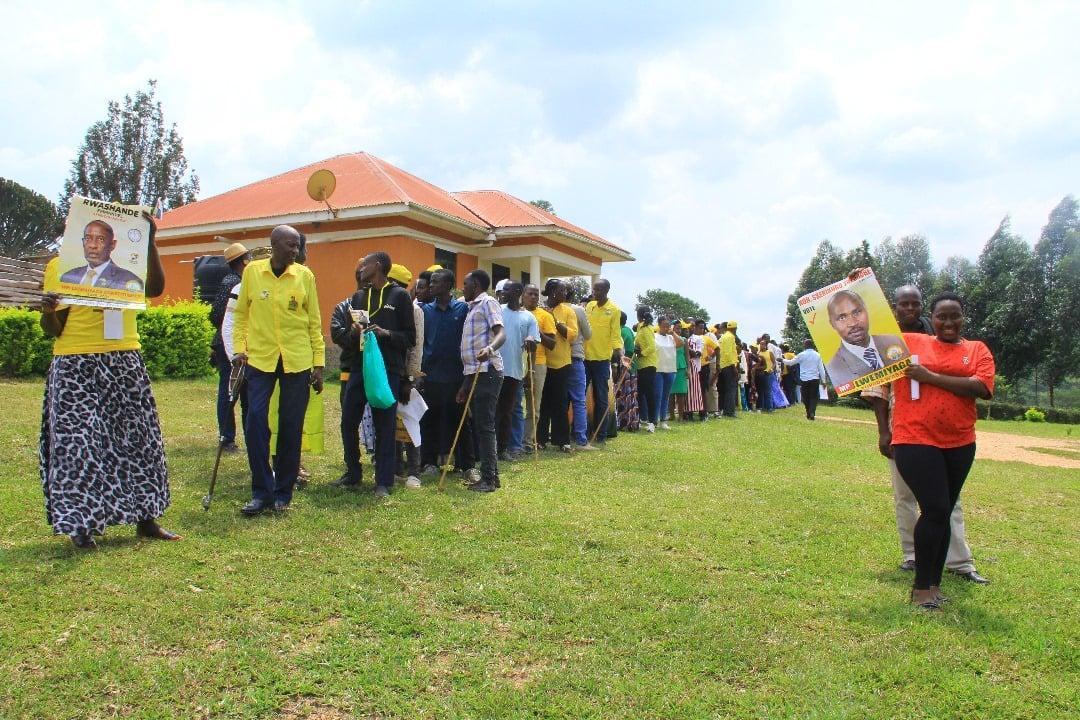Africa-Press – Uganda. What began as a bold step toward transparency in 2020 is now being questioned for its unintended consequences.
As the ruling National Resistance Movement (NRM) navigates a minefield of electoral disputes, many are asking whether the party’s decision to abandon secret ballot voting in favor of the “lining up” method has done more harm than good—financially, politically, and morally.
During the 2020 NRM National Delegates Conference at Namboole, President Yoweri Museveni rallied the party to adopt a public queuing system to select flagbearers.
The rationale? Curb vote rigging and cut election costs. But six years on, the party is paying a different kind of price.
Over 300 NRM electoral officials have been arrested. Lives have been lost, and many more injured in violent clashes.
A special tribunal comprising 28 lawyers has been convened to handle the avalanche of complaints—an undertaking so expensive it includes daily sitting allowances, salaries, meals, stationery, tents, laptops, and data for a reported 45-day period.
It is unclear whether overtime is also being paid for what sources describe as “relentless” work hours, exceeding eight hours a day, seven days a week.
Ironically, the transparency that lining up was meant to deliver has given way to allegations of intimidation, voter bribery, and orchestrated chaos.
Even families are being split—most notably, reports have emerged of feuds involving sons of former Chief Justice Bart Katureebe, now entangled in accusations of vote tampering.
Henry Muguzi, executive director of the Alliance for Finance Monitoring (ACFIM), says the party’s internal electoral system is backfiring.
“NRM should have allowed the party to grow and learn to exist as a political party. They should never have integrated into lining up,” he said.
Muguzi accuses the party of ignoring dissenting voices and failing to enforce strong internal checks.
“The quality of leadership forgot nothing and learnt nothing.”
Muguzi further argues that the costly tribunal will only bear fruit if it functions with integrity, impartiality, and evidence-based judgments. But public skepticism is growing.
“Everyone that saw the NRM primaries saw the bribery, violence, and ugly scenes. People believe justice must be seen to be done,” he said.
Without this, Muguzi warns, the tribunal risks becoming a theatre of political appeasement, likely pushing more aggrieved aspirants to contest as independents.
Analysts, including Makerere University’s Ndebesa Mwambutsya, agree: the situation requires a political—not legal—solution.
“The party’s challenges are a result of failing to listen to internal criticism. What they thought was cost-saving has turned out to be an expensive gamble,” he said.
The broader worry is how these unresolved grievances might spill into the national elections.
With widespread voter bribery reportedly left unpunished in the primaries, the NRM risks exporting the same chaotic energy to the 2026 general polls—weakening its internal unity and potentially undermining electoral legitimacy.
As the party scrambles to restore order and cohesion, one truth is becoming clear: the lining up experiment may have cost far more than it saved.
For More News And Analysis About Uganda Follow Africa-Press






